LC Interpreting Services is now SignNexus!
Deaf Discrimination: The Fight for Justice Continues
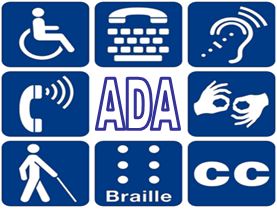
Last thing you remember, you were walking down the street— now you are lying in a hospital bed. The lights are so bright you can barely see, and your whole body is in pain. You try asking for assistance, but none of the medical staff can understand you because none of them communicate by using American Sign Language (ASL). They hand you some paperwork and ask you to write your questions on a note pad, but all you want is a conversation. What happened to you? How did you get here? What are you supposed to do now?
Frequently and all too easily, the rights of people who are deaf get stripped away. Every day, deaf individuals attempting to interact with hearing authorities, emergency responders, or organizations are denied basic access to communication and, in some instances, their lives are put into jeopardy. There have been a number of cases where deaf Americans are wrongfully arrested after calling 911 for help. There are cases where deaf people die after the hospital withholds a critical medical diagnosis. Or perhaps ambitious students are denied access to medical school because the institution doesn’t feel like fulfilling their legal obligation to provide an interpreter. Although we live in the Land of the Free, the deaf citizens of this country continue to be oppressed by a disturbing lack of equal access
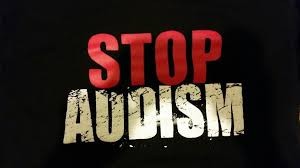 As we approach the 25th anniversary of the Americans with Disabilities Act, it is alarming to see the level of audism that still exists in in this country. Audism is the belief that those with the ability to hear are superior or “normal.” Because of audism, the rights of deaf individuals are regularly violated in places such as movie theaters, classrooms, and even online. Simple considerations such as captioning, transcription, or sign language interpreting services can help break through the language barrier to protect the rights of deaf Americans. The ADA is a set of laws which guarantee equal access, yet deaf people are refused these accommodations due to the ignorance that still exists.
As we approach the 25th anniversary of the Americans with Disabilities Act, it is alarming to see the level of audism that still exists in in this country. Audism is the belief that those with the ability to hear are superior or “normal.” Because of audism, the rights of deaf individuals are regularly violated in places such as movie theaters, classrooms, and even online. Simple considerations such as captioning, transcription, or sign language interpreting services can help break through the language barrier to protect the rights of deaf Americans. The ADA is a set of laws which guarantee equal access, yet deaf people are refused these accommodations due to the ignorance that still exists.
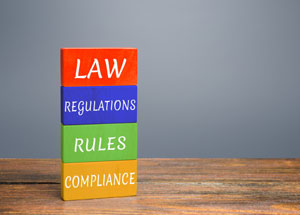 Instead of building communication access in as a business expense, many organizations take an audist approach– meaning that they assume the people who wish to join their staff, patronize their business, or utilize their services are all able to hear. Based on the fact that 15% of American adults report some hearing loss, a number which increases to 25% for people over 65 years of age, businesses really ought to take a more inclusive approach right from the start. Institutions should be prepared from the onset to cater to our diverse population. Organizations which neglect to provide equal access as required by the ADA not only earn themselves a bad reputation within the Deaf community, they potentially open themselves up to a discrimination lawsuit.
Instead of building communication access in as a business expense, many organizations take an audist approach– meaning that they assume the people who wish to join their staff, patronize their business, or utilize their services are all able to hear. Based on the fact that 15% of American adults report some hearing loss, a number which increases to 25% for people over 65 years of age, businesses really ought to take a more inclusive approach right from the start. Institutions should be prepared from the onset to cater to our diverse population. Organizations which neglect to provide equal access as required by the ADA not only earn themselves a bad reputation within the Deaf community, they potentially open themselves up to a discrimination lawsuit.

Hospitals around the country are learning the hard way that equal access is no longer a choice. While the ADA requires equal accommodation in public settings, hospitals have been charged time and time again with neglecting the needs of deaf patients. Take the recent case of Cheylla Silva, a deaf woman with a high risk pregnancy who was asked to use a video interpreter for the birth of her child. Communicating with medical professionals through a remote interpreter on a pixelated screen and using unreliable equipment that is off to the side of the bed is not an appropriate solution while giving birth Without an on-site interpreter available, a deaf person who uses ASL to communicate simply cannot receive the same level of care as a hearing individual. This is not equality.
Businesses such as Apple, with a robust set of accessibility features, and rideshare startup Lyft, which proudly boasts a large number of deaf drivers, have included accessibility into their business models. Home Depot was listed among DeafFriendly.com’s top Deaf Friendly Businesses of 2014 for meeting deaf customer needs and hiring deaf employees. Sign language restaurants, such as Signs, Mozzeria, and DeaFined, are gaining popularity by offering patrons a “Deaf dining experience,” complete with deaf/HoH waitstaff. Staff and customers alike are thrilled to support businesses which assume responsibility for creating equal opportunities. These organizations recognize that the beauty of diversity far outweighs the expense of catering to a diverse population.
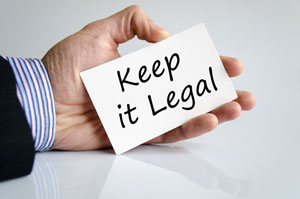
Discrimination occurs on an institutional level, starting with policies from the top down. Although many organizations tout the merits of multiculturalism, very few of them provide adequate cultural competency training for their staff or demonstrate diversity in hiring practices. Even in places where communication is critical, such as police stations and hospitals, deaf people are denied basic human rights. The ADA makes it clear that refusal to accommodate people who are disabled is discrimination. Therefore, every person in the workforce should be made aware of the ADA to protect themselves and their employer from liability. These laws have been in place for 25 years, it’s time we all take a little personal responsibility for preserving the rights of our fellow citizens.
Without equal access, quality of life suffers. Unemployment rates within the deaf community are nearly double the average rate in America, even for those who pursue higher education or specialty training. Without the ability to effectively communicate, deaf people are more likely to experience a medical misdiagnosis or wrongful arrest. Deaf people are denied cultural access in theaters and at concerts. Living in an audist society that assumes everyone can hear, the deaf community must fight just to participate in everyday life.
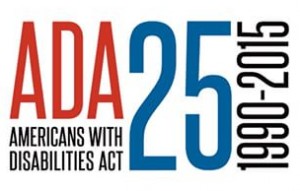 The ADA establishes the rights of deaf Americans to protect them from discrimination, yet it is a constant battle to have these rights recognized. Deaf individuals aren’t asking for special treatment, they only want access to the same rights and opportunities that all Americans should have.
The ADA establishes the rights of deaf Americans to protect them from discrimination, yet it is a constant battle to have these rights recognized. Deaf individuals aren’t asking for special treatment, they only want access to the same rights and opportunities that all Americans should have.
When does the oppression stop? When will our society accept that deaf people are capable of everything hearing people can do except hear? It is 2015 and there are more than half a million people in the United States who rely on American Sign Language to communicate. Deaf children in schools, deaf patients in hospitals, and deaf citizens of the world deserve equal opportunity. As civil rights advocacy permeates the mainstream, our society is opening up to the importance of cultural competency. In the fight for social justice, let’s make sure we don’t leave the Deaf community behind.







